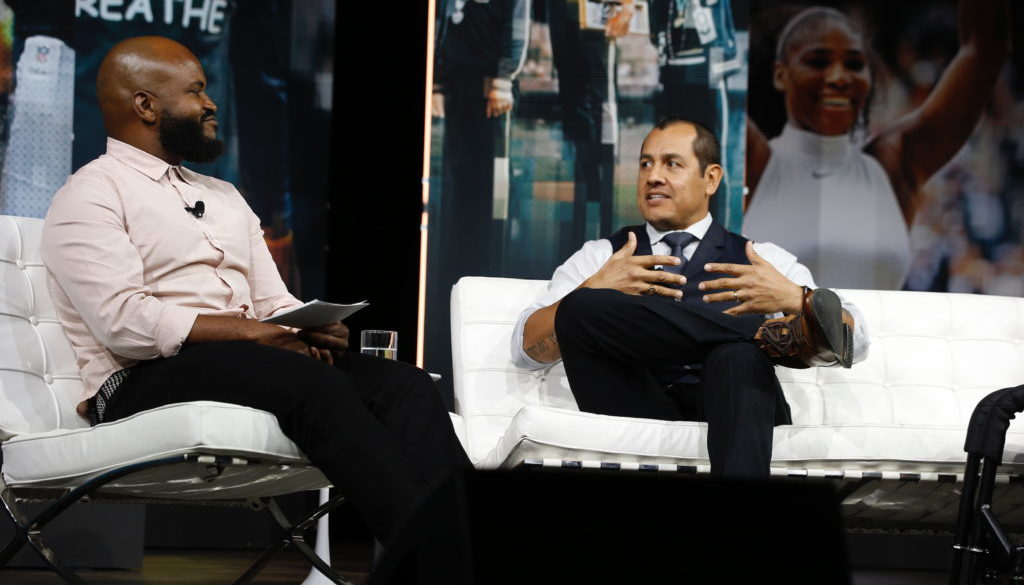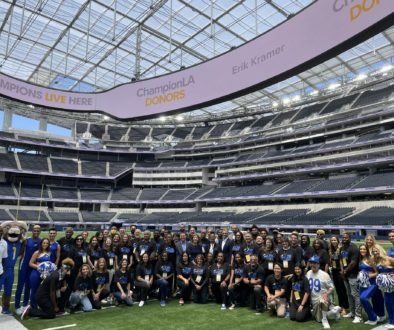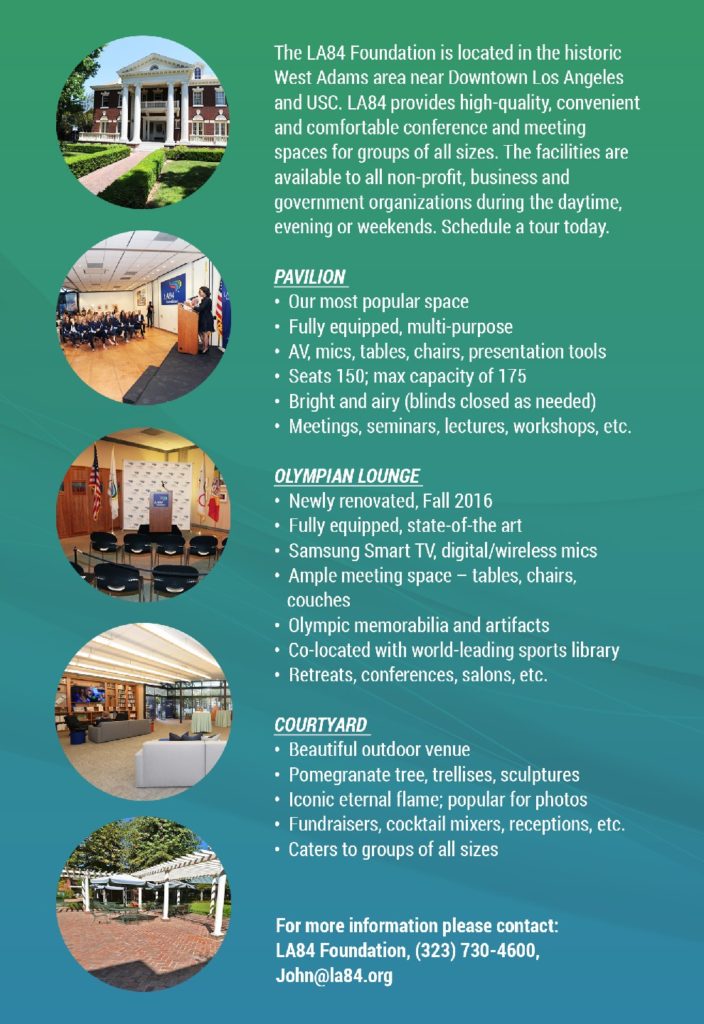2018 LA84 Foundation Summit Recap: Know No Limits
By: Jermaine Johnson II
In a conversation with Sal Masekela, Oz Sanchez went in detail about his life story, and his journey to becoming a Paralympian as well as a motivational speaker.
Sanchez began with the first section of his life, growing up as a kid in Los Angeles. His parents migrated from Mexico to create a better life for their children. He deems his disgruntled upbringing was a typical story of an immigrant family, with a lot of challenges.
“I found that my outlet for getting by and making due was sports and athleticism.”
By the age of 12, Sanchez was lifting weights and began cycling, which, he said brought him a sense of sanity.
He also emphasized his relationship with his older brother, who played a significant role in his life. This is what led to Sanchez join the military, just like his brother.
“It was either that or gang life, encounters with police, and jail,” he said.
He went on to explain the positive impact he received from the U.S. Marines.
“It provided everything I was missing: a sense of a family, community, brotherhood and positive male role models.”
For Sanchez, his time in the Marines gave him his first sense of fulfillment and the idea that he could be successful in life. Thus, he wanted to turn his tenure into a career path. He exited the U.S. Marine Corps and enlisted in the U.S. Navy with the goal of joining SEAL Team Six. During his time in between branches, Sanchez was in a motorcycle accident which left him with a severe back injury. With much of his identity being associated to the military and his athletic ability, this injury raised a rather large conundrum in his life.
“The doctors saying that I will never walk again was a really big pill to swallow, and I refused to entertain it for the next ten years.” Sanchez said.
After the accident, Sanchez struggled with suicidal thoughts.
“I shared my pity story for the better part of 10 years as I was drowning in my own misery,” he said. “Suicide wasn’t an option but happiness wasn’t accessible.”
To help him overcome his negative thoughts, he turned to his love for sports and athleticism.
“After my accident, I went back to my old reliable: physical fitness.” Sanchez said.
He participated in an adaptive version of cycling. Sanchez began racing and winning local marathons before being invited to join a camp for the U.S. Paralympic cycling team. “That exposed me to other athletes with disabilities,” Sanchez said. “These other individuals were genuinely happy and fulfilled in life, so I started wondering how that was possible,”
This experience helped him shift his outlook on his disability, which then led to his transformation process.
Sanchez stressed the importance of a strong mental physique, and the affect a personal narrative can have on an individual.
“As long as I was sharing that negative story, that is what was manifesting in my life.”
After he won his first gold medal during the 2008 Summer Paralympics in Beijing, China, he then became a mentor and role model for war veterans. When speaking to them, Sanchez wanted to share a different, more positive personal narrative.
“I shared this new version of the story of Oz that you can achieve, succeed, and be a role model through trial, error, and not giving up.”
This story became Sanchez’s new sense of identity and he released his old baggage.
The conversation then shifted towards individual activism. Sanchez explained how joining communities and nonprofits that promote certain messages, can help transform people for the better.
“I didn’t know the answers of how I was going to find myself, recreate my identity, and find fulfillment in life, until I joined the Challenged Athletes Foundation.”
The organization’s Operation Rebound program helps first responders and military veterans get back active in life. Sanchez was a part of this community for many years and it helped him find positivity and hope for himself through others.





